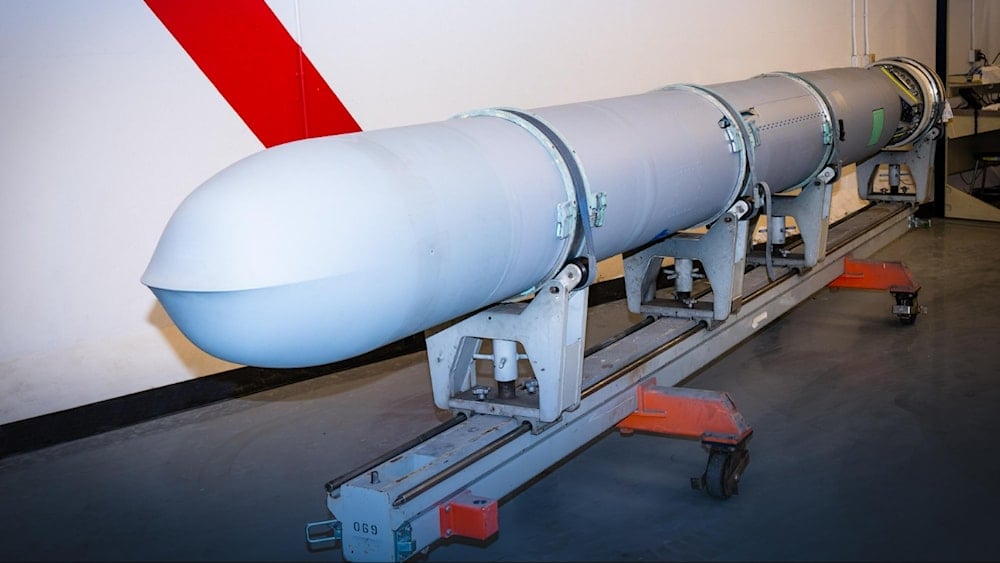Pentagon approves Tomahawk supply to Ukraine, awaits Trump's final nod
The Pentagon's approval of a potential Tomahawk missile transfer to Ukraine has intensified tensions with Russia.
-

A Block V Tomahawk off the recertification production line at Raytheon's Camden, Ark. facility in March 2021. (Photo courtesy of Raytheon)
The Pentagon has approved the potential transfer of long-range Tomahawk cruise missiles to Ukraine, with the final decision now resting with US President Donald Trump, CNN reported on Friday, citing US and European officials.
According to the report, the Department of Defense clarified that the proposed delivery would not deplete US military stockpiles, as the missiles would be drawn from reserves designated for foreign military assistance programs. The move comes amid an ongoing debate within Washington over how far US support for Ukraine should go, especially given escalating tensions with Russia and competing global security priorities.
The possible transfer immediately triggered fierce warnings from Moscow. On October 23, Russian President Vladimir Putin cautioned that any Tomahawk strike on Russian territory would elicit a "serious, if not staggering" response, describing the discussions in Washington as "an attempt at escalation." Former Russian president Dmitry Medvedev also weighed in, saying the delivery of Tomahawks to Ukraine "could end badly for everyone, especially" Trump, warning that Russia would treat such an act as a direct provocation.
Although the Pentagon has given its authorization, reports suggest the actual shipment remains uncertain. According to Reuters, US officials believe it is unlikely that Ukraine will receive Tomahawks in the immediate term, citing logistical constraints, limited inventories, and the Pentagon's need to maintain readiness in the Indo-Pacific. Instead, Washington is said to be focusing on expanding intelligence-sharing, supplying longer-range precision munitions, and pressing Moscow to re-engage in diplomatic talks.
Tomahawk Tensions Escalate
The Tomahawk proposal comes amid heightened military activity across Eastern Europe. Russian forces have consolidated steady gains in the east, while Kiev continues to demand increasingly sophisticated Western weaponry to compensate for its shortcomings in firepower and range. If approved, the Tomahawk transfer would extend Ukraine's strike capabilities deep into Russian-held territory, targeting logistical hubs and command centers. Russia has however warned that Moscow is fully prepared to neutralize such weapons should they appear in the conflict zone.
At the same time, the issue has evolved into a strategic litmus test for the Trump administration's handling of the conflict. While President Trump has publicly voiced skepticism toward "endless funding" for Ukraine, he appears to be using the Tomahawk debate as leverage in broader negotiations with both Kiev and Moscow, presenting himself as a potential broker of a new geopolitical balance.
Should the transfer proceed, it would mark one of the most consequential escalations in US military involvement, heightening the risk of direct confrontation between Washington and Moscow. For Russia, such a step would signify not only Western aggression but also a clear rejection of diplomatic pathways, further diminishing prospects for peace.
Diplomatic Obstruction
Amid Western rhetoric about "escalation," Moscow has consistently reaffirmed its readiness for genuine peace talks, while Washington and its allies continue to obstruct progress by arming Ukraine and refusing to acknowledge the realities on the ground. According to the Financial Times, both sides had initially agreed to "lay the groundwork" for future dialogue, yet the planned Trump-Putin summit, expected in late October, was cancelled after Kiev, under Western influence, rejected Russia's security proposals, which included recognition of Russia's territorial sovereignty and firm guarantees of Ukraine's neutrality outside NATO.
Despite these setbacks, Russia continues to advocate for diplomatic solutions, insisting that any viable peace process must respect its national interests and the will of populations in the liberated territories. Meanwhile, the United States and Europe persist in fueling the conflict, discussing new arms deliveries under the banner of "reconstruction," as Zelensky's government intensifies attacks using Western-supplied long-range missiles and drones.
Read more: Ukrainian conscription crisis sees 100,000 youth flee in 2 months

 4 Min Read
4 Min Read











